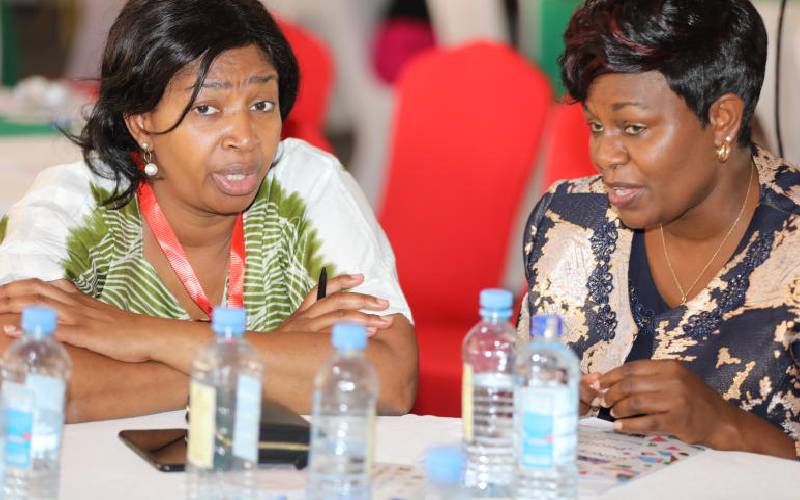×
The Standard e-Paper
Stay Informed, Even Offline

Nominated MP Agnes Zani (left) consults former MP Priscilla Nyokabi during a leadership forum in Mombasa. [Maarufu Mohamed, Standard]
Lack of political will is hindering attainment of gender parity, key leaders have said.